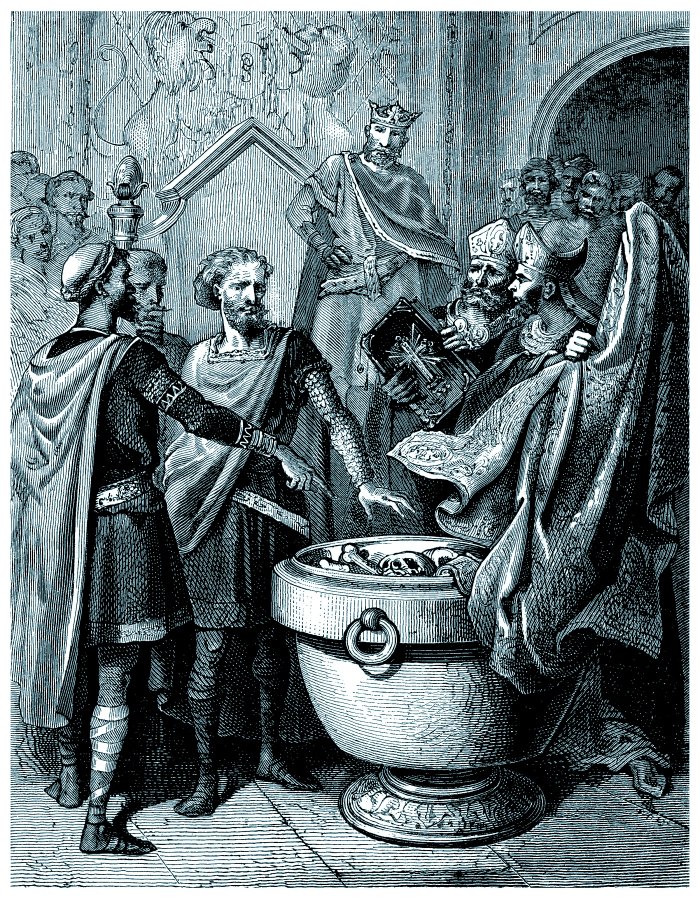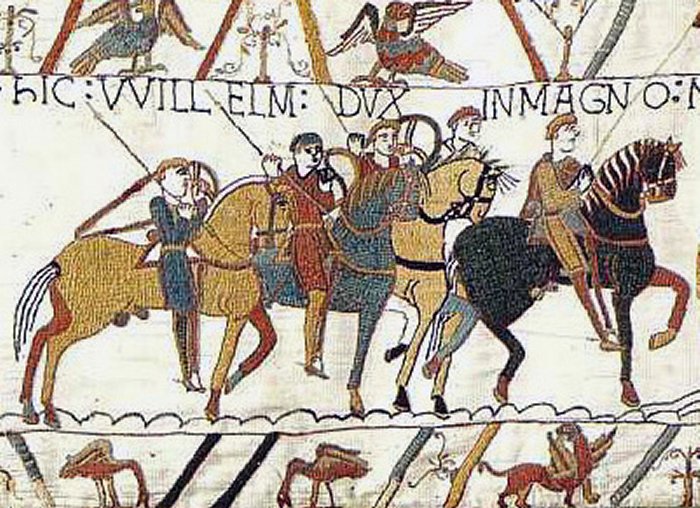William The Conqueror: Ruthless And Powerful Ruler Who Changed Britain Forever
A. Sutherland - AncientPages.com - Wilhelm I Conqueror, also known as "William the Bastard" (ca. 1028 -1087), was King of England and Duke of Normandy.
William the Conqueror & Harold II swearing - 11th century. Image: Adobe Stock - Erica Guilane-Nachez
William was the son of Herleva and Robert I, the Duke of Normandy, France, then known as “Francia”). William was frequently called a bastard, especially by his opponents. The reason was that his mother actually never married his father, Robert, most probably because Herleva was a simple Anglo-Saxon woman and not of noble birth.
Although he was the illegitimate son of the Duke of Normandy Robert the Magnificent (also called "Robert the Devil"), after his father's death in 1035, William was named his successor at only eight years of age. Under the name of William II (in French: Guillaume II), the boy became the new duke of Normandy during a challenging time.
William The Conqueror's Struggle To Gain Power
Corruption, violence, and strong opposition from powerful Norman barons, his bitter rivals, plagued his early reign.
Three of his guardians and his tutor died violent deaths during his childhood. William witnessed the end of his steward, Osbern, whose throat was cut by a Norman rebel while sleeping in William's bed-chamber.
William managed to survive the early years of chaos, both in his own life and in Normandy, with the help of King Henry I of France. From 1046 onwards, he successfully dealt with rebels, troublesome Norman barons, and all those who questioned the right of a bastard to succeed. Then with the support of Henry I, he began to expand his territory.
A late-1800s engraving shows William the Conqueror after the Battle of Hastings. Source
In 1051 the king of England, Edward the Confessor, appointed William as his successor. Edward died in 1066, leaving no direct heirs, and the country was threatened with invasion by two rival claimants, Harald Hardrada, King of Norway, and William, Duke of Normandy.
The English nobles elected to the throne their candidate - Harold Godwin (also called Harold Godwineson or Godwinson), the most powerful of the English lords.
William gathered his army and landed on the island. He was angry; Harold claimed the throne of England for himself, even though he made an oath to William to support his claim. On October 14, 1066, the two armies met in the famous Battle of Hastings.
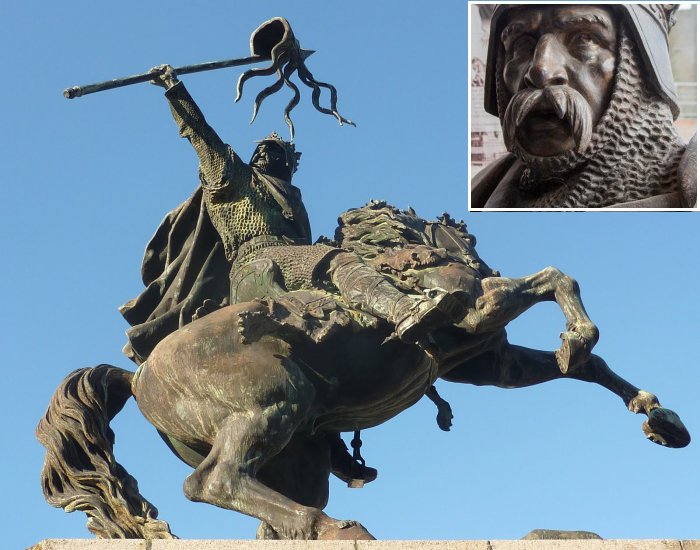 William, I was victorious and he took London without further resistance. Image credit: Man vyi - Public Domain
William, I was victorious and he took London without further resistance. Image credit: Man vyi - Public Domain
According to modern scholars' estimation, each of the sides had between 5,000 and 7,000 men.
William The Conqueror Becomes King Of England
King Harold and his two brothers were killed in the battle. William, I was victorious; he took London without further resistance. He was crowned king of England on Christmas Day, 1066, and ruled until he died in 1087.
However, the conquest of England had not yet ended. Several revolts marked the next five years, and William used them as an excuse to confiscate English land and declare it his property. Subsequently, he distributed the land to his Norman knights, who imposed their unique feudal system.
The following important issue was a nationwide inventory of property landlords and property of the people. William had to determine the taxes he had to pay all his subjects.
The Bayeux Tapestry, chronicling the English/Norman battle in 1066 which led to the Norman Conquest. Image credit: alipaiman - Public Domain
Once an entire picture of England was collated in the Domesday Book, William could send his tax gatherers out. Eventually, the Normans replaced the whole of the Anglo-Saxon aristocracy.
His famous "The Domesday Book" was a detailed register of the population and property of England (now an invaluable source of historical information and still in the Public Record Office in London).
William died on September 9, 1087, in Rouen, France. He had four sons and five daughters; every monarch of England since has been his direct descendant.
He never spoke English and was illiterate, but his influence on England and the English language was enormous.
"William the Conqueror was a fierce warrior that may cause gentler people to shudder. However, our world needs such people. Without them, we might destroy ourselves and our civilizations based on disorganization and a lack of cohesive leadership..." 1
Written by – A. Sutherland AncientPages.com Staff Writer
Updated on February 25, 2023
Copyright © AncientPages.com All rights reserved. This material may not be published, broadcast, rewritten or redistributed in whole or part without the express written permission of AncientPages.com
Expand for referencesReferences:
Ed Sharrow - The Last Battle: The Life of William the Conqueror
Edward Freeman - William the Conqueror
Abbott Jacob, William the Conqueror
- in60Learning, William the Conqueror: The King Who Changed the Course of British History
More From Ancient Pages
-
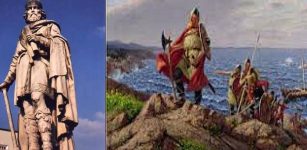 On This Day In History: Battle of Englefield Was Fought – On Dec 31, 870
News | Dec 31, 2016
On This Day In History: Battle of Englefield Was Fought – On Dec 31, 870
News | Dec 31, 2016 -
 Geronimo: Story About This Western Indian Chief Will Never Die
Featured Stories | Jul 21, 2018
Geronimo: Story About This Western Indian Chief Will Never Die
Featured Stories | Jul 21, 2018 -
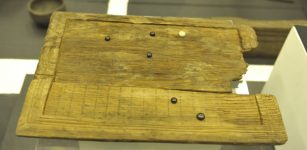 Unique More Than 1,600-Year-Old Board Game With Pieces Recovered From Roman Soldier’s Tomb
Archaeology | Jan 6, 2018
Unique More Than 1,600-Year-Old Board Game With Pieces Recovered From Roman Soldier’s Tomb
Archaeology | Jan 6, 2018 -
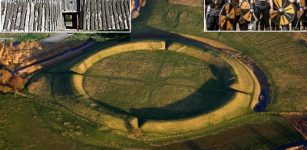 Great Viking Fortresses Built By King Harald Bluetooth
Featured Stories | Dec 12, 2022
Great Viking Fortresses Built By King Harald Bluetooth
Featured Stories | Dec 12, 2022 -
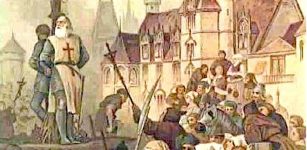 On This Day In History: Knights Templars’ Jacques de Molay Burned At The Stake – On Mar 18, 1314
News | Mar 18, 2017
On This Day In History: Knights Templars’ Jacques de Molay Burned At The Stake – On Mar 18, 1314
News | Mar 18, 2017 -
 Enigmatic Szeptunka – Magical Healing Gift Of The Whisperers
Ancient Traditions And Customs | Apr 15, 2020
Enigmatic Szeptunka – Magical Healing Gift Of The Whisperers
Ancient Traditions And Customs | Apr 15, 2020 -
 Quest For Atlantis Of The Sands – Iram Of The Pillars – A Legendary Lost City
Featured Stories | Aug 7, 2018
Quest For Atlantis Of The Sands – Iram Of The Pillars – A Legendary Lost City
Featured Stories | Aug 7, 2018 -
 Aboriginal ‘Memories’ Of Australia’s Coastline Go Back More Than 7,000 Years
Civilizations | Sep 30, 2015
Aboriginal ‘Memories’ Of Australia’s Coastline Go Back More Than 7,000 Years
Civilizations | Sep 30, 2015 -
 ‘Flower Burial’ And Shanidar Cave With Neanderthal Remains Who Lived 70,000 Years Ago
Archaeology | Feb 19, 2020
‘Flower Burial’ And Shanidar Cave With Neanderthal Remains Who Lived 70,000 Years Ago
Archaeology | Feb 19, 2020 -
 Viking Ragnar Lodbrok Wanted To Kill His Son Ivar The Boneless
Featured Stories | Jun 19, 2017
Viking Ragnar Lodbrok Wanted To Kill His Son Ivar The Boneless
Featured Stories | Jun 19, 2017 -
 How Did Hunter-Gatherers Spread Knowledge Of Pottery Vast Distances Over A Short Period Of Time?
Archaeology | Dec 28, 2022
How Did Hunter-Gatherers Spread Knowledge Of Pottery Vast Distances Over A Short Period Of Time?
Archaeology | Dec 28, 2022 -
 Discovered – Large Mysterious Structure Hidden Under The Sand In The Sahara Desert – A New Pyramid Or Something Else?
Archaeology | Nov 13, 2019
Discovered – Large Mysterious Structure Hidden Under The Sand In The Sahara Desert – A New Pyramid Or Something Else?
Archaeology | Nov 13, 2019 -
 Deformed Skulls And Clues Found In Ancient Cemetery In Hungary
Archaeology | May 1, 2020
Deformed Skulls And Clues Found In Ancient Cemetery In Hungary
Archaeology | May 1, 2020 -
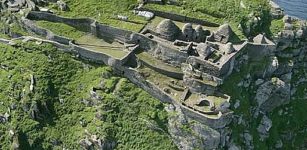 Magnificent Skellig Michael And A 1,400-Year Old Christian Monastery
Featured Stories | Feb 8, 2016
Magnificent Skellig Michael And A 1,400-Year Old Christian Monastery
Featured Stories | Feb 8, 2016 -
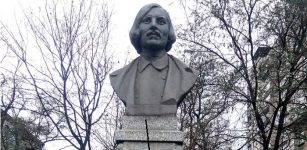 On This Day In History: Russian Writer, Poet, Critic Nikolay Gogol Died – On Mar 4, 1852
News | Mar 4, 2017
On This Day In History: Russian Writer, Poet, Critic Nikolay Gogol Died – On Mar 4, 1852
News | Mar 4, 2017 -
 Seshat: Goddess Of Astronomy Aligned Sacred Monuments To The Stars Long Before Imhotep
Egyptian Mythology | Mar 15, 2018
Seshat: Goddess Of Astronomy Aligned Sacred Monuments To The Stars Long Before Imhotep
Egyptian Mythology | Mar 15, 2018 -
 Oldest Living Culture: Research Reveals Indigenous Ritual Spanning 500 Generations
Featured Stories | Jul 9, 2024
Oldest Living Culture: Research Reveals Indigenous Ritual Spanning 500 Generations
Featured Stories | Jul 9, 2024 -
 Proteus: Prophetic Greek Sea God Who Knew All Things, Past, Present And Future
Featured Stories | Jan 17, 2020
Proteus: Prophetic Greek Sea God Who Knew All Things, Past, Present And Future
Featured Stories | Jan 17, 2020 -
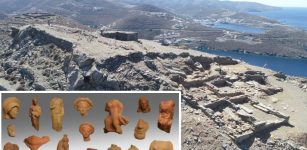 Over 2,000 Clay Figurines Discovered In The Ancient City Of Kythnos
Archaeology | Jun 10, 2023
Over 2,000 Clay Figurines Discovered In The Ancient City Of Kythnos
Archaeology | Jun 10, 2023 -
 Archaeologists Discover Gloucestershire’s Hidden Treasures
Archaeology | May 14, 2024
Archaeologists Discover Gloucestershire’s Hidden Treasures
Archaeology | May 14, 2024

